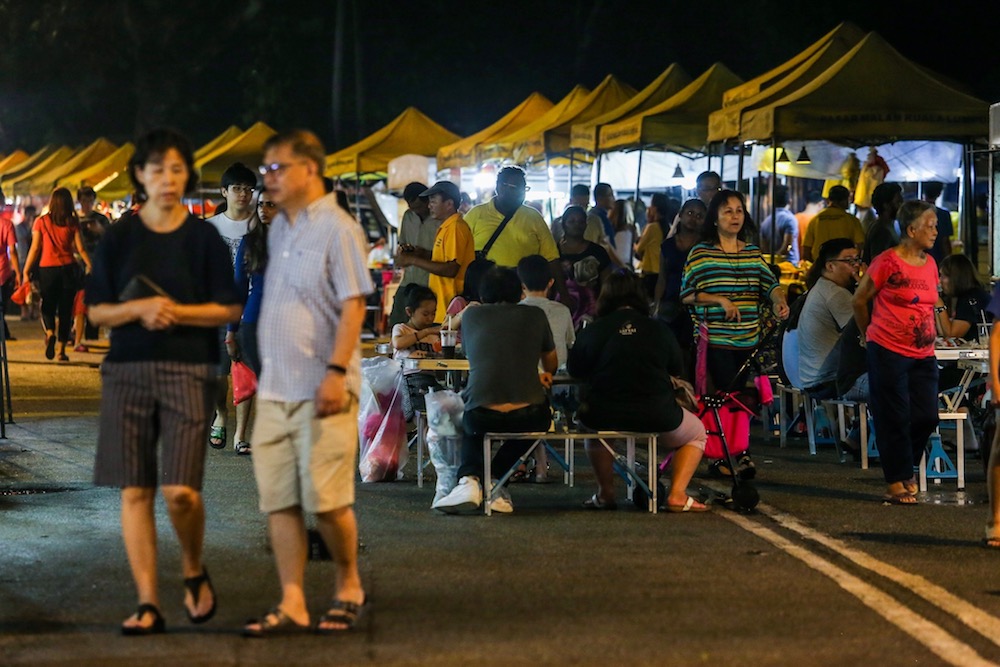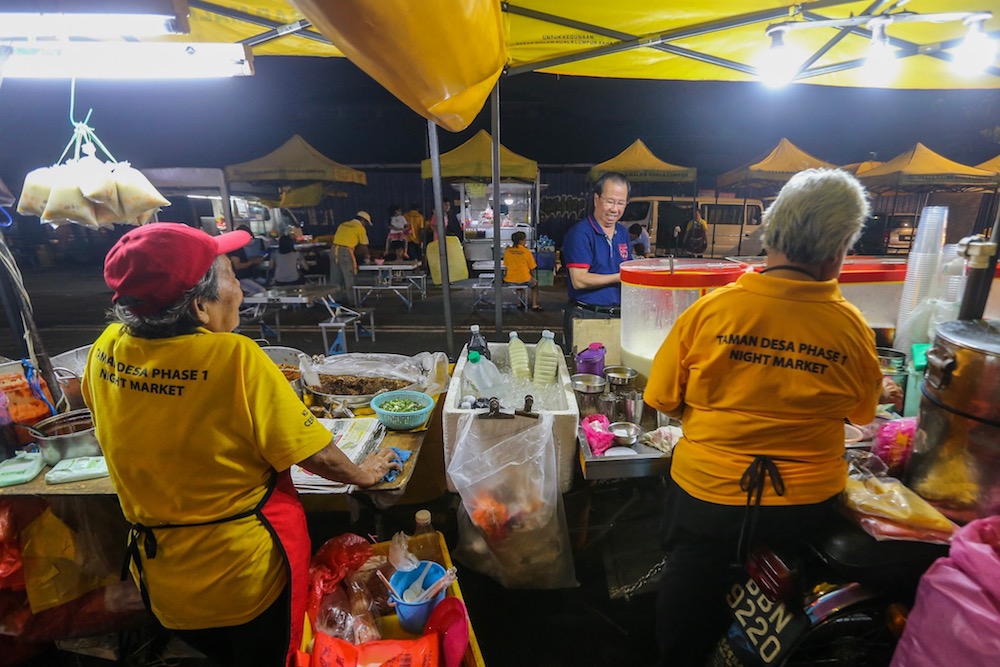KUALA LUMPUR, May 28 — Visitors to the popular pasar malam at Taman Danau Desa here have no idea that there is a spat going on between two factions among the hawkers.
It seems a group of seven hawkers are accusing the Taman Desa Phase 1 Night Hawkers Association (TPD1NHA) of being greedy and unreasonable.
But wait, let’s look at how this Friday pasar malam of some 80 hawkers first came to be.
This is actually the third location of the night market, from its previous spot near the now-closed Desa Water Park where it operated from 2008 to January last year. Its first location was along Jalan Desa Utama, from 1980 to 2008.
The second relocation was triggered by the complaints of nearby residents who were upset by the rubbish and disorganised layout, as well as its failure to attract visitors compared to Jalan Desa Utama.
Since setting up along Jalan 1/109f, the hawkers, many of whom operated at the second and even first location, have seen an increased foot traffic and consequently, revenue.
The disagreement with the seven hawkers came to a head in April when they — represented by NGO Pertubuhan Minda dan Sosial Prihatin’s Abuse of Power Bureau chief Tony Tan Chee Chong — called a press conference to accuse the association, particularly its secretary Carman Sum, of numerous wrongdoings.
Speaking to Malay Mail, Sum said the origins of the entire issue can be traced back to one individual, a hawker who sells salt-baked chicken.
“He had been with the pasar malam since the Desa Utama days, but when we moved nearby to the water park, he slowly stopped showing up as he felt the place was not good for his business,” she said when Malay Mail visited the pasar malam last Friday.
Sum said when TPD1NHA relocated the pasar malam to its current spot, he suddenly said he wanted to participate; he was subsequently informed of the first meeting that took place in November 2017.
“He did not come as he claimed his wife was ill, but neither did he show up for the second and third meetings even though we reserved a seat for him.
“The thing is, we allowed him to attend despite his lapsed operating licence for the old location. Yet when we were dividing the locations of the lots, he complained his allocated space was unsuitable,” she said.
Sum added that hawkers who signed TPD1NHA’s terms and conditions have no say in where they will be placed as it is based on traffic flow, although the association tries to be as accommodating as possible.
“Instead, he decided to set up his stall at an emergency road with a fire hydrant, which is not allowed.
“Some of the other traders tried to reason with him, saying they were willing to switch their own spots with the one allocated to him. But he refused outright,” she said.
Since then he has managed to convince six other hawkers to join his “cause,” Sum said, adding that of the six, four had also operated at the old locations, but showed up infrequently or in some cases, had expired licences from that time.
As a result, the association refused to accept or approve their applications for trading licences.
This probably led to the seven going to the press, where, among others, they accused the association of profiteering by charging an annual renewal fees of RM236 per spot.
“This is an outright lie as RM236 is for new application charges for first-timers. In fact, the renewal fee is only RM36.
“Although we have filed numerous reports with Kuala Lumpur City Hall as well as the police, no action has been taken against them,” she said.
What is even more puzzling is City Hall, better known by its Malay initials DBKL, trying to convince the association via letters to simply give the seven the licences they seek.
Unable to explain why DBKL has seemingly sided with the faction, Sum said the association will nonetheless stand firm on the issue.
(Attempts to contact the Licensing Division of DBKL were not successful at the time of writing.)
“I suspect they are out to replace us, since he brought in two new outsiders to his side. Already I have heard of them approaching the others, urging them not to wear the uniforms and such.
“Thankfully they have failed for now. Whatever it is, the association has pledged to ensure fairness and transparency and will fight against attempts by anyone to ride roughshod all over the place,” she said.
Supporting her is Taman Desa Phase 1 Residents’ Association president Frank Yeh, who has assisted TPD1NHA on several occasions as part of the association’s efforts to maintain good relations with the surrounding residents and the hawkers.
“It has not been an easy task to dissuade them from following the faction and doing as they like. Ultimately, we want this place to be as pleasant as possible.
“Historically, pasar malam have been hotspots for crime, so with Taman Desa Phase 1 we want to project an image of a safe, secure, clean and pleasant place which can attract as many as possible,” he told Malay Mail.























